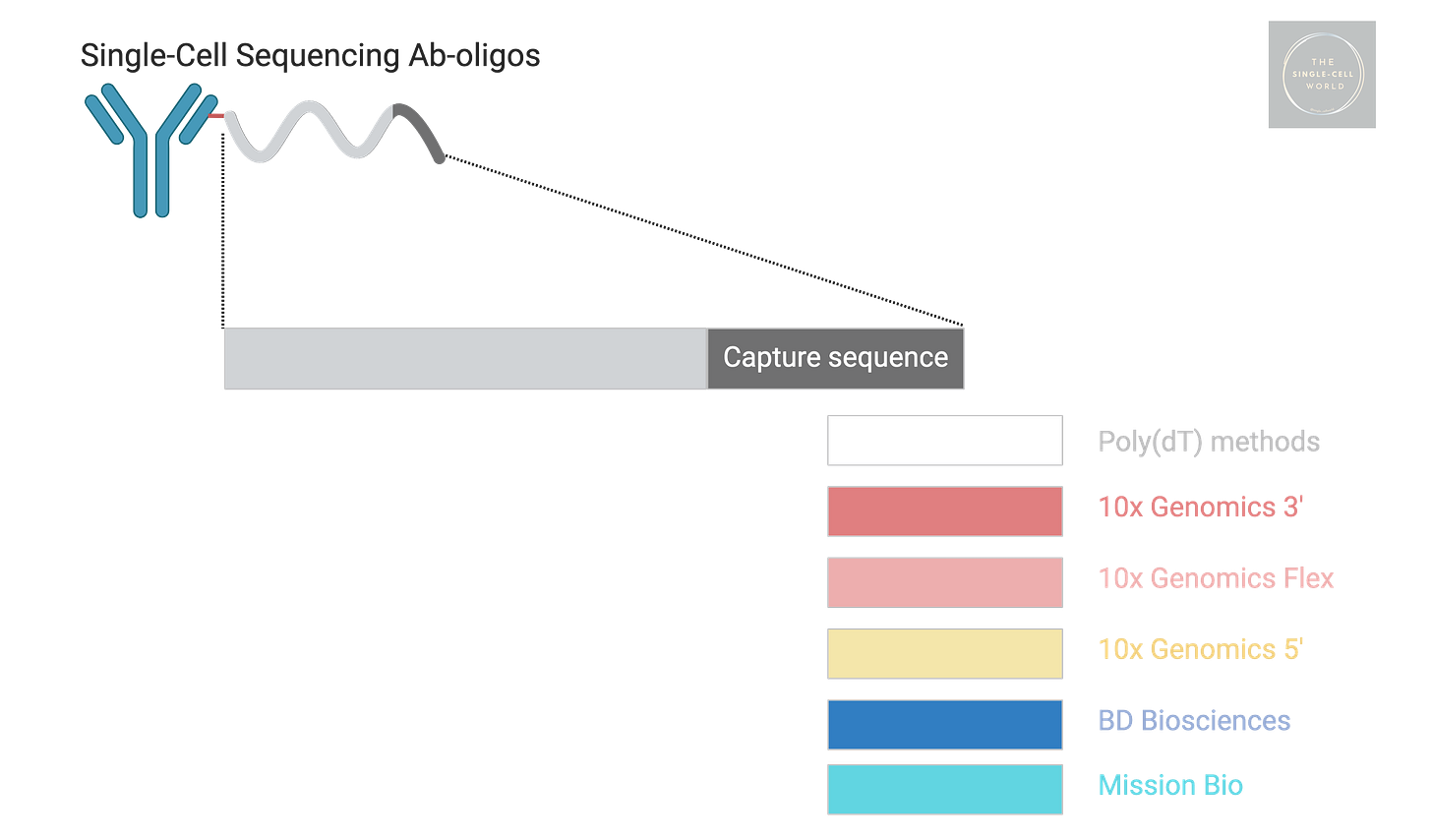Antibodies to use in Single-cell Sequencing Experiments
Biolegend, BD Biosciences, Proteintech, Abcam and Novus Biological
In molecular biology, we use antibodies produced by animals' immune systems (like 🐭, 🐰, 🐥,…). These Y-shaped proteins help identify and neutralize foreign objects like bacteria, 🦠, and other pathogens. The immune system creates antibodies to stick to these antigens and eliminate them. At the lab, antibodies can be used in different research experiments. Today, I'll tell you everything I know about the antibodies that we can use for single-cell sequencing experiments.
Reasons to use them
Usually, we have 4 main reasons to include antibodies in our single-cell sequencing experiments:
⬇️ experiments costs
⬇️ samples batch effect
🔺 boost cell numbers for specific technologies
Multiomics approach: proteins + RNA or 🧬
Choosing the right antibodies depends on our goals, the technology used, and sample characteristics.
What makes the antibodies used in single-cell sequencing experiments unique?
For single-cell sequencing experiments, we must use oligo-tagged antibodies, also called antibody-oligonucleotide conjugates (Ab-oligos). Each antibody has an attached short nucleotide sequence, aka. oligo. You might be thinking, "I also use Ab-oligos for immunoprecipitation (IP) or multiplexed immunostaining." That's correct.
👉🏻 What makes single-cell sequencing Ab-oligos special is that the oligo is complementary to the sequence (also an oligo) that is used in single-cell sequencing methods to capture the mRNA or DNA (Fig. 1).
Biolegend's antibodies are the most popular, but BD Biosciences, Proteintech, Abcam, and Novus Biologicals also offer different formats of oligo-tagged antibodies.


